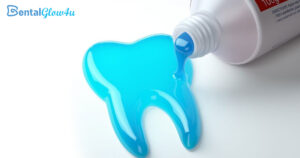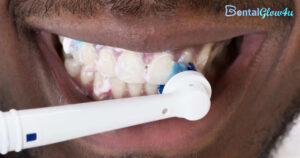Is Your Toothpaste Turning Your Teeth Sensitive? Discover the Truth!
Is your toothpaste making your teeth sensitive? If you’ve ever felt a sharp jolt while biting into an ice cream cone or winced at the thought of brushing your teeth, you might wonder if your toothpaste is the culprit. Let’s dive into this minty mystery and explore how our daily dental habits could turn our smiles into sensitive frowns.
The Toothpaste Tangle
Toothpaste is meant to be our ally in the battle against plaque and cavities, but not all toothpastes are created equal. Some are designed specifically for sensitive teeth, while others might be more like that friend who always overstays their welcome—great at first but ultimately a little too much to handle.
What’s in Your Tube?

Many toothpastes contain active ingredients like potassium nitrate, strontium chloride, or arginine. These ingredients are designed to reduce sensitivity by blocking nerve signals or occluding dentinal tubules (the tiny channels in your teeth). However, not all formulas work the same for everyone. Some people might find relief with a specific brand, while others could feel like they’ve just been brushed with hot sauce.
The Sensitivity Saga
Imagine this: You’re enjoying a lovely dinner when suddenly, you take a sip of chilled soda and—BAM!—a shooting pain radiates through your mouth. This is dentin hypersensitivity, often triggered by exposed dentin due to gum recession or enamel wear. While desensitizing toothpastes aims to soothe these painful responses, studies suggest that their effectiveness can vary widely.
The Great Toothpaste Showdown
In recent clinical trials, researchers have compared various desensitizing toothpastes to see which ones truly deliver on their promises. For instance, one study found that toothpaste containing tricalcium phosphate significantly reduced sensitivity compared to a fluoride-free control. Meanwhile, other brands like Sensodyne have been around since the 1960s and continue to be popular choices for those battling sensitivity.
However, here’s the kicker: while some users swear by their desensitizing toothpaste, others report no significant difference in their sensitivity levels after using different products. It’s like trying to find the perfect pair of jeans—what fits one person like a glove might leave another feeling constricted and uncomfortable.
The Role of Technique

Before you toss your toothpaste tube in frustration, consider your brushing technique. Are you brushing too hard? Using a hard-bristled toothbrush? These factors can exacerbate sensitivity issues. A gentle touch with a soft-bristled brush can make a world of difference. Think of it as giving your teeth a spa day instead of a wrestling match.
Beyond Toothpaste: Lifestyle Factors
It’s also essential to consider lifestyle factors that contribute to tooth sensitivity. Acidic foods and beverages can erode enamel over time, leading to increased sensitivity. If you’re a fan of citrus fruits or soda, you may want to enjoy them in moderation and rinse your mouth with water afterward to neutralize acidity. Additionally, habits like teeth grinding (bruxism) can wear down enamel and expose sensitive areas of your teeth. If you suspect you grind your teeth at night, consult your dentist about protective options like mouthguards.
When to Seek Help
If you’ve tried multiple toothpastes and adjusted your brushing technique but still experience sensitivity, it might be time to consult with a dentist. They can help identify any underlying issues contributing to your discomfort—like cavities or gum disease—and recommend treatments that go beyond toothpaste.
The Toothpaste Truth
So, is your toothpaste making your teeth sensitive? The answer isn’t straightforward. It could be the formula itself or how you’re using it. With so many options on the market, finding the right toothpaste can feel like navigating a maze of minty freshness. Keeping an eye on how your teeth respond to different products and techniques will help you find the perfect match for your smile.
Remember: just because something is marketed as “sensitive” doesn’t mean it will work for everyone. Stay informed, stay gentle with your brushing, and don’t hesitate to reach out for professional advice if needed. Now go ahead and enjoy that ice cream cone—just maybe take it easy on the cold drinks!
